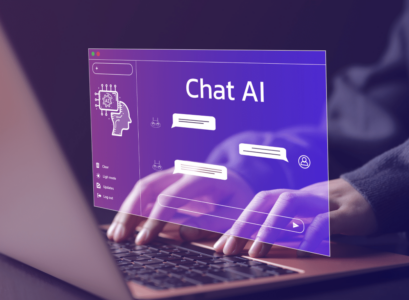Generative Artificial Intelligence has revolutionized many areas of business, especially in Customer Service, with a significant impact on Inbound Services. Consumers expect fast responses, effective solutions and a personalized customer service experience that is tailored to their individual needs. It is in this scenario where generative AI presents itself as a powerful tool for companies, allowing them to offer a high quality, efficient and tailored service to each customer.
With generative AI in Customer Service, companies have the ability to automate repetitive tasks, personalize interactions in real time, and intelligently use data to anticipate their customers’ needs. This has resulted in an Inbound Service approach that not only improves the customer experience, but also optimizes company resources.
What is generative Artificial Intelligence in Customer Service?
Artificial Intelligence (AI) is a branch of computer science that enables machines to perform tasks that traditionally require human intelligence. These tasks include speech recognition, natural language understanding, data analysis and decision making. When applied to customer service, generative AI helps automate processes, improve the accuracy of responses and personalize interactions with users.
Within customer service, generative AI is primarily used in response automation using chatbots, voice recognition systems, and virtual assistants. These systems can handle large volumes of queries and provide immediate solutions to customers without the need for human intervention. However, generative AI in this area is not limited to automation; it can also analyze real-time data to tailor interactions based on each customer’s preferences and history.
Inbound services and their relationship with generative AI
The concept of Inbound Services refers to an approach to customer care that focuses on attracting, engaging and retaining customers through proactive, quality interactions. This approach has a clear objective: to improve the customer relationship through accessible, continuous and tailored service. This is where generative AI brings significant value, as it allows companies to offer constant and personalized attention, optimizing the user experience and boosting loyalty.
AI applied to Inbound Services allows companies to create automated customer care systems that respond to customer queries immediately and accurately. Moreover, by integrating with data analytics platforms, generative AI can anticipate user needs, making personalized recommendations and improving each interaction. In this sense, generative AI not only makes service more efficient, but also contributes to a more rewarding and memorable customer experience.
Main advantages of implementing generative AI in Customer Service
Implementing generative AI in customer service brings a number of key benefits that help companies optimize their resources and improve customer satisfaction. The following are the main advantages of this technology in the context of Inbound Services.
Automation of Repetitive Tasks and Responses
Automation is one of the areas where generative AI stands out most clearly in customer service. Thanks to AI, companies can deploy chatbots and virtual assistants capable of answering common queries automatically and effectively. This technology allows customer service agents to free themselves from repetitive tasks and focus their time on solving more complex problems or handling cases that require empathy and human judgment.
Chatbots and Virtual Assistants
Chatbots are generative AI programs designed to simulate conversations with users in real time. Today, these systems can answer frequently asked questions, perform simple transactions, and guide customers through various processes. For example, a chatbot can assist a customer seeking information about opening hours or the location of a store.
Advantages of chatbots:
- 24/7 availability: chatbots can provide continuous support without a break.
- Immediate responses: Automation reduces wait times, which contributes to a better customer experience.
- Ability to handle a high volume of queries: Unlike humans, chatbots can handle multiple interactions at the same time without compromising quality.
Automation through AI not only frees human agents from repetitive tasks, but also boosts productivity and professional development. For a deeper dive into this topic, we recommend you listen to the podcast with Microsoft’s Roberto Icasuriaga Gatti, where he discusses the impact of AI on employees and businesses, and how this technology is creating new job opportunities.
Real-Time Personalization
Personalization is one of the most valued aspects of the customer service experience. Generative AI makes it possible to analyze large amounts of user data in real time, delivering personalized interactions that generate a more authentic and relevant connection.
Data Analytics to Know the Customer
Generative AI systems can analyze data such as purchase history, product preferences and browsing behavior, allowing companies to create detailed profiles of each customer. With this information, it is possible to tailor the interaction according to each user’s particular interests and needs.
For example, an e-commerce platform using generative AI can recommend products based on each customer’s previous searches and purchases, improving the chances of conversion.
Personalized and Tailored Interactions
Generative AI allows responses to customers to be tailored in real time, offering specific recommendations and personalized messages. This contributes to an experience that users perceive as unique and relevant. A customer who receives a personalized suggestion or tailored message feels valued and cared for, which increases their loyalty to the brand.
Benefits of Personalization:
- Increased customer satisfaction.
- Increased conversion rate.
- Improved customer retention and loyalty.
Improved Service Speed and Efficiency
One of the great benefits of generative artificial intelligence in customer service is the significant improvement in the speed and efficiency with which companies can resolve customer inquiries. Generative AI makes it possible to respond instantly, handle large volumes of interactions and reduce human error, all of which contribute to a streamlined and accurate customer experience.
Instant Response to Common Questions
Today’s customers expect an immediate response to their queries. AI, through tools such as chatbots and virtual assistants, makes it possible for companies to provide continuous attention with no wait time. This is particularly useful in sectors with high demand for attention, such as e-commerce, financial services and telecommunications.
Examples of common questions solved by AI:
- Verification of basic information: opening hours, store locations, product availability.
- Account status and transactions: reviewing balances, pending payments, and order tracking.
- Frequently asked questions: return policies, terms of service, and registration processes.
Human resource optimization
The ability of generative AI to handle repetitive and routine queries allows human agents to spend their time on more complex cases that require empathy or a deep understanding of the customer. This not only increases operational efficiency, but also improves the morale of employees, who can focus on higher-value tasks.
Optimizing business resources
Generative AI not only facilitates the automation of repetitive tasks, but also enables efficient allocation of enterprise resources. By identifying interaction patterns, companies can assign human agents to complex queries while simple tasks are handled automatically, maximizing productivity and reducing operating costs.
Predictive Analytics to Anticipate Customer Needs
One of the most advanced features of generative artificial intelligence in customer service is its ability to use predictive analytics, anticipating customer needs before they formulate an inquiry. Predictive analytics, powered by machine learning algorithms and complex data models, enables companies to identify behavioral patterns and forecast future interactions. This results in a proactive and personalized customer service experience.
How does predictive analytics work in customer service?
Predictive analytics uses large volumes of historical and current customer data, such as their purchase history, previous interactions, and browsing patterns. Generative AI processes this data to identify trends and behaviors to anticipate what the customer might need or ask about. For example, a customer who has reviewed several similar products might receive specific recommendations or a personalized offer to close the purchase.
Why integrate generative AI into the inbound service?
For companies providing Inbound Services, generative artificial intelligence can be a decisive competitive advantage. By integrating advanced AI technologies, these services can offer continuous, optimized and high quality care, which not only improves the customer experience but also strengthens the company’s relationship with its users.
In short, generative artificial intelligence in customer care is an investment in long-term growth, with measurable benefits in efficiency, satisfaction and retention. Adopting this technology helps companies stay relevant and competitive, while generating a unique, continuous and quality customer service experience that strengthens the relationship with their customers and promotes loyalty.
Do you want your company to reach new levels of efficiency and customer satisfaction? At Xtendo, we are ready to help you implement innovative and effective solutions in your commercial and operational areas. Discover how we can transform your business and take it to the forefront of customer service technology, contact us and together we will take your strategy to the next level!






